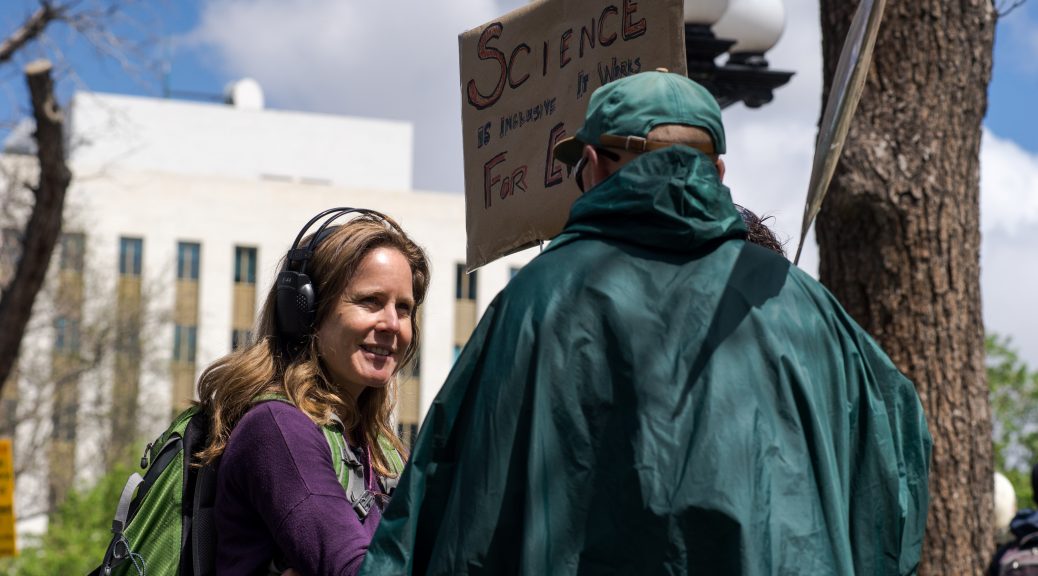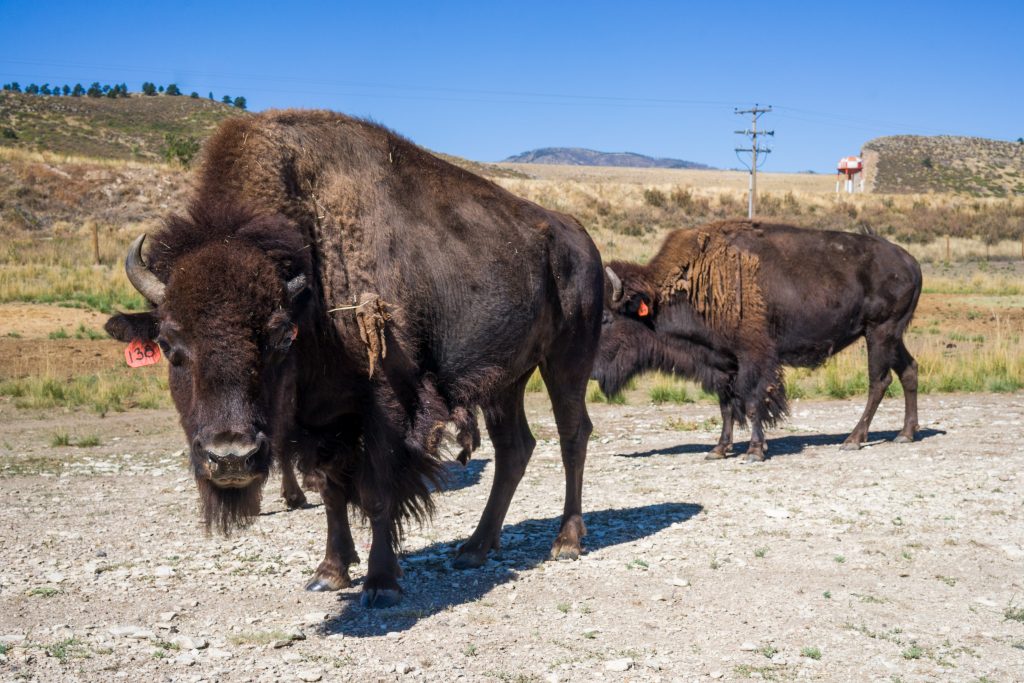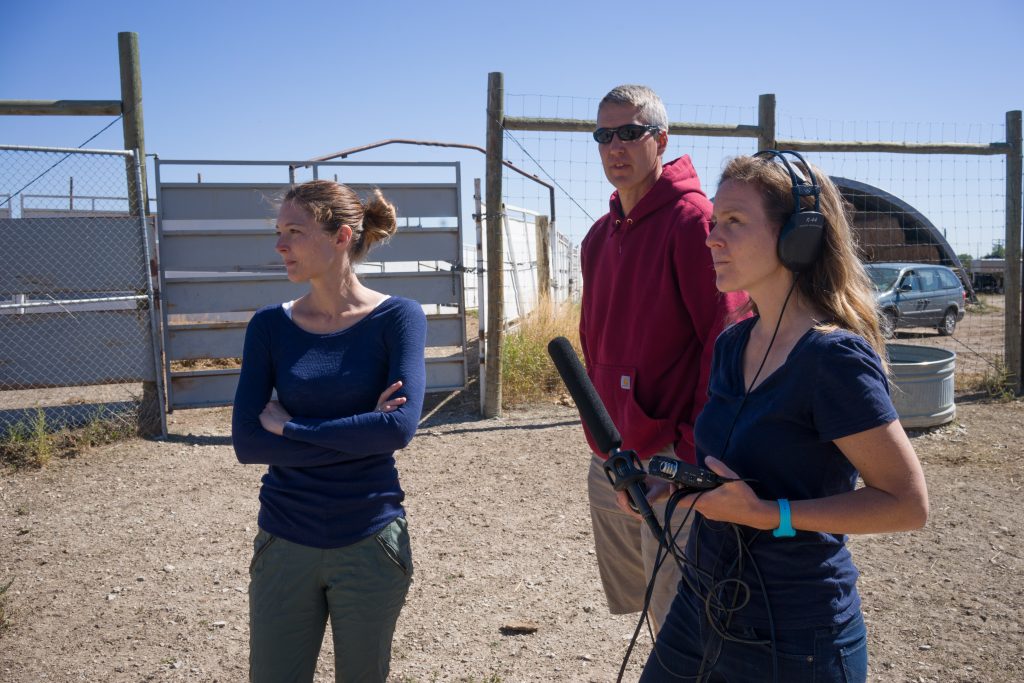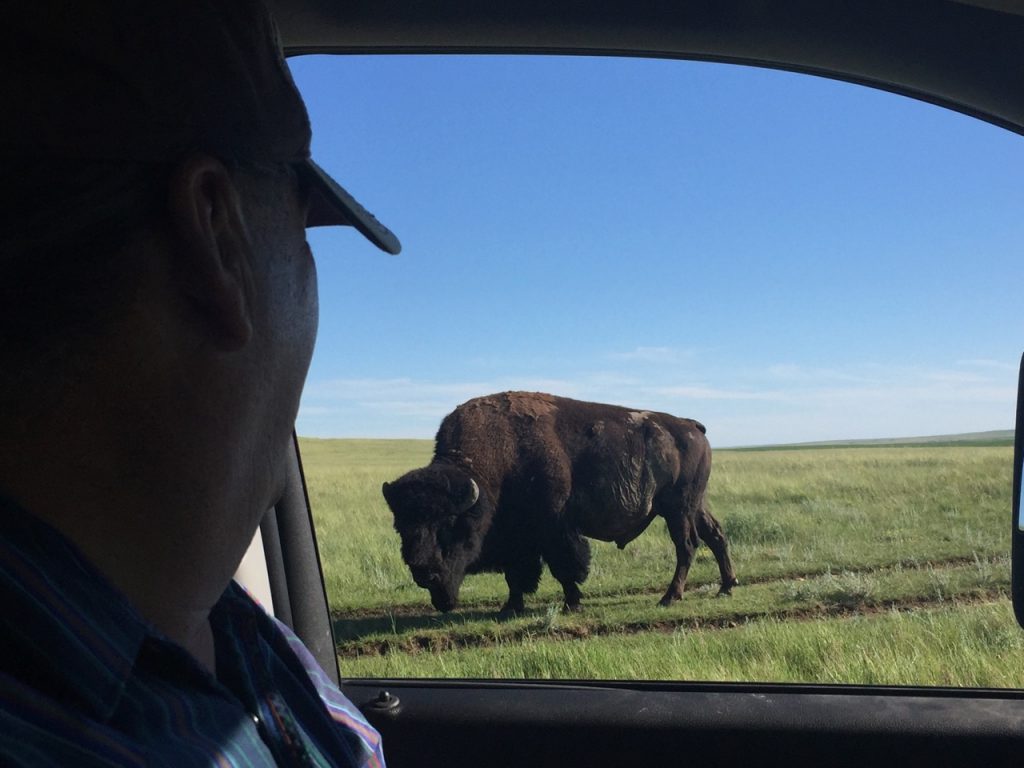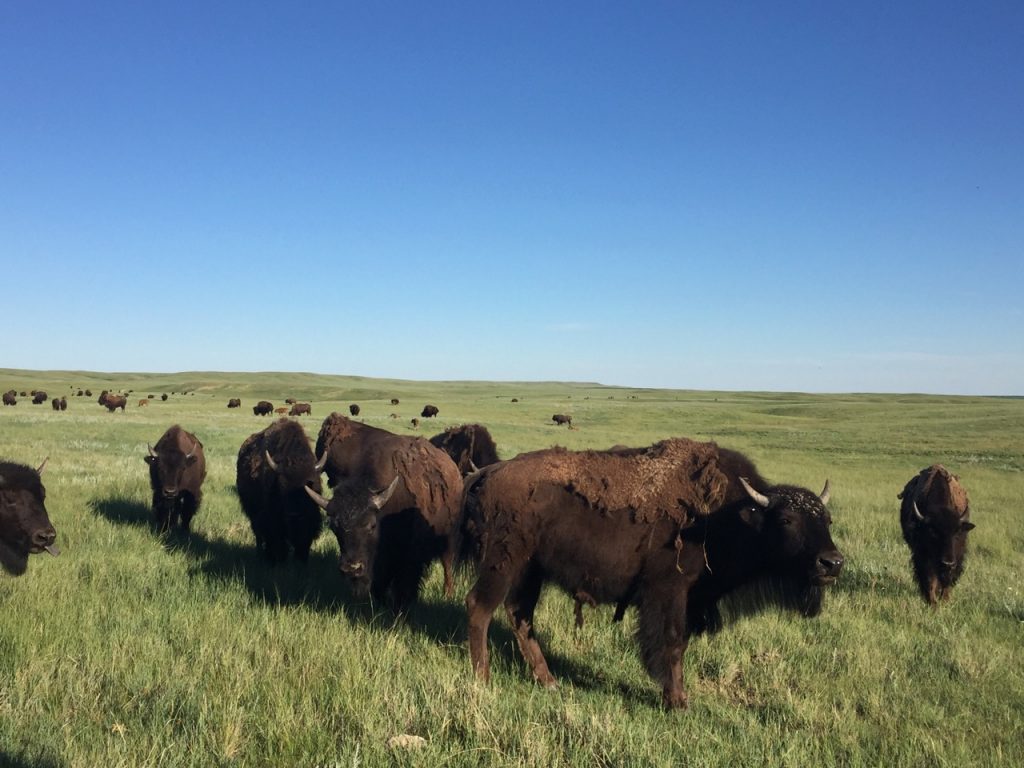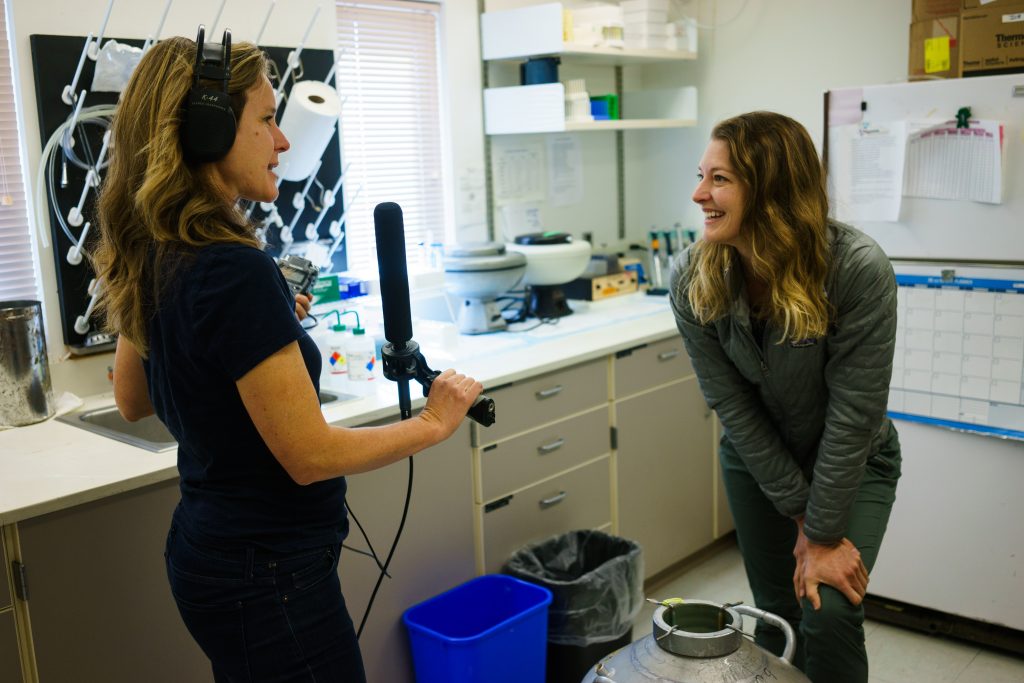Rising Voices with Michael Keaton
Whitefish Review talks to the legendary actor about a good fish tale—and the cost of freedom in the rising voices of our time.
Published December 2, 2017 by Whitefish Review, Issue #21
Interview by Ryan Friel, Mike Powers, Brian Schott
Our conversation with Mr. Keaton was born of good fortune. Editor Ryan Friel had guided filmmaker Chris Dorsey this past summer at Crystal Creek Fishing Lodge in Alaska. Dorsey had previously filmed Keaton for the fishing and environmental documentary, “Buccaneers & Bones” and had mentioned to Ryan that he would be happy to coordinate an introduction with Keaton and the Whitefish Review.
Keaton’s biography as an actor is well known, including his film roles in Night Shift (1982), Mr. Mom (1983), Johnny Dangerously (1984) and Beetlejuice (1988). He earned further acclaim for his dramatic portrayal of the title character in Tim Burton’s Batman (1989) and Batman Returns (1992). His performance in Birdman (2014) earned him a Golden Globe, a Critics’ Choice Award, and nominations for the Screen Actors Guild Award, British Academy Film Award, and Academy Award for Best Actor. Birdman also won the Oscar for Best Picture. Spotlight (2015) took the Oscar for Best Picture and Best Screenplay as well.
While Keaton’s work life requires his presence in Hollywood, much of his real life has been spent on his ranch in Montana for the past 28 years. He’s a movie star at the top of his game. So f course we chose to talk with him about fishing. The editorial team spoke with Mr. Keaton on November 7, 2017 from his home in Los Angeles.
Brian Schott: Hey, Michael. It’s Brian.
Michael Keaton: Hi!
BS: How are you?
MK: I’m okay. How you doing?
BS: I’m well. I’m sitting here with Ryan Friel and Mike Powers, our other editors.
MK: Okay, great.
RF: Hi, Michael. The connection here with me is as a guide up in Alaska with [filmmaker Chris] Dorsey, and I know your time is precious—we appreciate any of it. But can I do a super quick Dorsey story? Because I believe you’re fairly familiar with him.
MK: Sure, does it involve him killing a large animal?
RF: Um no, not quite. It involves us flying to a remote river in Alaska, landing on this beautiful rainbow trout stream, and telling him to fish in this spot here. And him hooking a gigantic chrome fish that came out of the water, broke him of—and he looked at me and said, “Are there salmon in here?” And I said, “There are, but that wasn’t one…” [laughter] It was a monstrous rainbow trout and he literally said, “I need a minute.” And then he took the minute to just
stand in the river and contemplate what had just happened.
MK: Let me ask you this. Was there a large wet spot in the front of his pants? [laughter]
RF: Well, he had his wader-monkey-suit on. But I think maybe, had we examined it later, we might have found something to that effect.
MK: [laughter] Yeah, you know I can’t believe I’ve never been to Alaska. I’ve been as far as Alaska in British Columbia several times, but never to Alaska itself, which seems stupid to me.
RF: Well, what I do know is that you’ve fished in a lot of amazing places. I did see a giant steelhead that you must’ve landed somewhere up there in BC. [British Columbia]
MK: That was a really good fish. And then I caught another—it was a slow week on the Dean [River] but I did manage to get a really good fish. Actually, pal, it was maybe the best fish I’ve ever caught—if you add everything together in terms of difficulty, where I chased him, how far I chased him, and how we landed him, because it was, ah… let me put it this way. Twice, I heard the guy in the back of my boat mumble to himself—he was kind of a quiet guy—“I’ve never chased a fish down here before.” I heard him say to himself, “Oh, fuck.” And then he goes, later on, mumbling, about 10 minutes later, something like, “I can’t believe this fish.” I’ll tell you this story later unless you want to hear it now.
[Keaton does not pause.]
Well, I hooked this steelhead at the end of a long pool, like a pond or lake—you know how they are up on the Dean? My friend had hooked one at almost the exact spot, generally speaking, in the same area, let’s put it that way—and it stayed in the pool. We hooked this fish hovering around the edge of the pool and I’ll tell you exactly what I said. I’ve done this several times and I did this several times on the trip. You probably have too. You know how you just know when
it feels real “fishy”? And it was a slow week by the way—we were hooking fish, but we weren’t catching. We did okay, but it wasn’t great. Three times I hooked up and every time I said, “Right there.” You know, when you know where the tug should be? And you just sense… The cast was good, everything came together, and everything was just kind of right. And I said, “Right there.”
Boom! This fish tugs and pulls, and then, boom! I set the hook and he jumps. Actually, he somersaults, and then he does another jump. He’s pulling at the edge of the pool, and I’m thinking, “Oh man, just stay in the pool!” Because below was this long set of rapids and below that, you’d have to stop the boat and get out to walk, and then they’d pick you up. So it’s this long set of rapids, whitewater-ish kind of stuff. And I go to the guy in the boat, “Okay, do you think he’s going to stay in there?” And he goes, “I dunno.”
And so I just hold onto him and the fish makes a couple runs. Then he’s sitting right there at the edge and the guys goes, “You don’t want a fish to go down those rapids.” And then he says, “You don’t want a boat to go down those rapids either.” So I’m thinking, ah, man, just stay in this pool! You know? Ten he’s tugging, he’s tugging, and he makes another run again. Ten all of a sudden I’m like, “Well fuck, he’s going down!” So I’m thinking, if this guy says, “You know what Michael, I can’t go down there,” I’d be cool with it. But I’m thinking, I don’t know what’s going to happen. And I hear the engine start and I think, “Oh fuck, we’re going down!”
So this is pretty cool. Now we drift over and now he’s gone around this big rock so we’re chasing him down and we’re getting to a spot where he’s jumping out of the whitewater back in the direction of the ocean. He’s headed back down. Well, here’s the great thing. I have this rod— and I don’t want to mention the guy who makes these rods because he’s a friend of mine—and he was experimenting with a new rod and gave it to me and said, “Tell me what you think.” And
I like his rod. I had broken it twice already, you know, in the ferrules, in the connection—he just got it down too thin and it had cracked—so I had electric tape around two different spots on this rod and I’m thinking, there’s no way I hang on—there’s no way this rod doesn’t [break] with this fish.
Because when the fish came out, I said over my shoulder, “Mike, that’s a big fish.” And he didn’t say anything. So I think, well maybe it’s not a big fish—because these guys never seem to say anything— but I’m thinking to myself, that seems like a big fish to me. So now I’m thinking, how am I going to land this fish without this rod breaking again? And I’m thinking, well, I just gotta give it to him, I can’t let him go, I can’t horse it. Just pick my spots so I can put something on it. I don’t know what to do. And now we’re going down and he comes out of the water again. So I jump out of the boat and I run down the bank. I had to duck under some trees because it’s kinda tight along the bank. Now he’s in a pool and I get him and I think, this is it! This is it! And boom! He’s gone again. He’s up and out of the water and takes off again. So I start running after him and [the guide] drifts the boat.
I jump back in the boat while we are kinda moving and chase him down. We get him in a pool and I get out of the boat and I think okay, he is done. And he takes of again! And there’s this huge rock sticking out and I said if you can get him in this eddy behind these big rocks—like six or seven feet tall—if I can get him in there I’ll jump out behind those rocks and run down. I’ve been out of the boat three times today… so I say, “I’ll put him in there.” And the guy goes, “If he gets behind those rocks, we’re done. He will just break off.”
So he doesn’t go behind the rocks, thank God. He bolts again. Now, my other friend was at the first pool and he said, “I saw you leave and then you didn’t come back for like a half hour!” So we chase this thing and then finally I saw a spot way below. And you can kinda tell he was going to give. I’m saying it was, oh, I don’t know, it was probably about—he said I was gone a half an hour. The cool part, the fun part was, you get to that point where you say to yourself, I don’t have to land this fish. This is a badass fish. This is a great story. This is a good hookup. I have played him nicely. And then you go, yeah, I’m okay. But then you reach a point where you say, now I have to land this fish!
RF: Yeah, now you would like to land him.
MK: Yeah! I must land the fish. The story turns, and you know if it’s on long enough then the story becomes “…and then I lost him.” And that’s not what I wanted to have happen. I thought, I am landing this fish. There is no way I’m not landing this fish. I have to find a way to land this fish. So I got him down. And he was really a nice fish. A really good steelhead. Probably the best steelhead I ever caught. I really respect them. You know, when you get a really badass fish that
just says fuck you, and just runs? You know, I respect that, man. I love those tough, tough fish.
RF: Yeah, as do I. And it’s great to have the full story like that. I have lost a whole lot of steelhead that have gone up river. In my early days of steelheading I was thinking, well, what do I do now? And my friends would be like, “Well, go up and get him!” And I’d be running after these steelhead and thinking, wait a second, I’m used to running down river for these fish.
MK: Yeah, I know. I caught a fish in New Zealand one time with my brother. It wasn’t about the fish. It was about, “Am I going to land this fish?” And here’s the other thing. You laugh hysterically while it’s going on.
RF: Hopefully, yeah!
MK: Because it’s just so much fun! You just think, “This is insane what I’m doing right now!” And it’s just so much fun. So pound for pound that was maybe the best fist I’ve ever caught. It was a sizeable fish, but the point was—with a broken rod in two places, finessing it the whole time—a lot of times I just had to point the rod down and give it to him because I was going to snap the rod. Ten I had to pick the spot where I had to put a lot of pressure on him. I was thinking if this thing goes, there’s no way I hand-line this fish.
RF: No, not one of those. [laughter]
MK: The best thing about the fishing is not really the fishing. I have a theory that the reason I like fishing is because it’s actually hunting. Deep down it’s the predator going way back, which we’re all disconnected from, but there’s this predator-prey, hunter-gatherer
thing. Deep down, there’s something there. One of my favorite moments was in western Montana with my brother. There was one of those great, summer thunderstorms rolling in. It was just pounding us. We both huddled up. He was across the river tucked under a tree and I was up on the other side on the bank tucked under a tree waiting it out and we sat there for a half hour.
I looked across the river and just watched my brother and thought, man, this is such a great moment. No one was even fishing. It was just two guys sitting under a tree, waiting for the rain to stop. And it was one of my favorite fishing moments.
BS: Circling around to art, Michael, can you talk a little bit about what you feel the role of the artist is in society today?
MK: I think it’s important. I think it’s always been important, but now I think it’s even more important. I may have been hesitant to admit it, but I’m not anymore because I don’t care what people think [laughter] and I’ve lived long enough to know the difference. It’s important and I’ve never been one to make it a precious thing, but frankly it’s a precious commodity and it means a lot. People don’t even realize that it means a lot. It depends on what your definition of art is. But I find things that I see or the way somebody does something that is really artful—and to a lot of people it may sometimes be mundane. The stuff that impacts me or anybody deeply—I don’t want to say high art—but it’s just the stuff that is really exquisite.
I find all this really important and more important than ever because you can say what you want and it may seem like it’s just for a privileged few, but it’s actually 100% not for the privileged few. It’s important because you have to have it. However one wants to define art, because it can sound so pretentious, but there must be art in the world and there must be beauty in the world. If you took away painting and literature and theater or anything in the arts, people would think you could do without it and they don’t realize you can’t do without it. It’s kind of like food.
I didn’t see what Larry David did the other night on his SNL piece. He’s a friend of mine and I find him very funny, but I guess it was controversial. He stepped in some dangerous territory, [a joke that involved a concentration camp] but that’s what Shakespeare’s characters did. Shakespeare often had a guy—and I played one once. I played Dogberry [in Much Ado About Nothing]. Shakespeare needed a voice to say things and he usually chose a comedic character to say something, to step out there, because the comedians are the truth tellers, because it’s based on irony and based on truth. Comedy always comes from a spot of truth.
People relate to something that’s funny because it hits them somewhere and it rings true. So you need Larry or other people to push it. I think of everything, comedy is more important than ever.
I’m talking mostly right now in terms of the political landscape and how people are divided. A lot of these people are the truth tellers. You may not like them, or you may not agree, or they may offend you, but they make you stop and think. They’re carrying the flashlights, shining the flashlights in all the corners. So I think of all the arts right now, comedy is as important as anything.
BS: Can you talk about the role of mentors a little bit? This is something important to us at Whitefish Review, publishing young writers in the same pages as pros like Rick Bass. What were the roles of mentors in your own career and helping you find your voice?
MK: I think it’s really important. I found my own way for the most part and that’s not to say there weren’t a couple of helping hands here and there to provide opportunity. For me it was mostly paying attention and asking a lot of questions and being in the company of a lot of different people and following them in terms of the actors or writers or painters or anybody who caught my eye. So I don’t know that there was any one person for me who was a mentor, except maybe one who was my partner and my friend and my manager for a while. He was a mentor in terms of his take on the world. He had a really interesting take on the world and I related to his observations.
The gap in our ages was big, but I never had a thing about age. Maybe it was because I had parents who were older. I’m the youngest of nine originally—my mom lost two kids—so seven kids. I was the youngest and there were big gaps. I never had a thing about age. I didn’t judge age. I never saw that people were old—so they’re not hip, or they don’t have “it” or I can’t connect.
How many times have you been out—not to talk about fishing again, because I don’t really like to talk about fishing—[laughter] and you see some kid like 17 years old and you watch him cast
or he shows you something and you think, holy shit, this kid is unbelievable. Or he shows you a pattern he came up with. Or just his sheer tenacity. You know, I’ll learn from anybody. When I’m the guy who maybe gets asked—and I don’t know that anyone has ever asked me to be a mentor really—but I’m a good teacher. I know how to teach. I actually enjoy it.
BS: We need you to be our mentors, Michael. We’re asking. [laughter]
RF: How to navigate the LA landscape.
MK: You’d live to regret it!
RF: I’m with you 100% as far as not judging age, because me now as an older guy in AK—and we’ll stop talking about fishing—I see these younger guys and work with them and they have a skill set that I have lost or never had garnered. And they look to me as an older guide and think, this guy can still pull this of. I think that’s part of the symbiotic relationship and I think that part of what we can have—whether it’s fishing or writing or living, really.
MK: Yeah, man you’re not kidding. I’ve worked with actors sometimes and we are all in it together. You see certain younger actors make mistakes, not necessarily even in terms of acting, but you see them do certain things and you think, oh yeah, I was that stupid! I try to treat everyone as an equal. Not just because I want to be a swell guy, but I don’t really understand the logic of not doing that, frankly.
RF: Agree.
MK: Being a part of a big family, I was always around older guys. My brother’s friends—there were always little kids in the house because someone was always having a baby. So there were all these babies around. Maybe it’s from that. I would have been democratic in the true sense of the word—not in terms of party politics—but I always had a democratic view, whether I wanted to or not. I didn’t have a choice. Except when I was raising my kid and I explained to him to one day—I said you might think this is a democracy, but this is really a dictatorship and I’m the dictator. [laughter]
Mike Powers: You spent some time on an Indian Reservation in Arizona when you were young. What did it teach you then about Native American voices?
MK: Well, it was something that came over me. I was always curious about it. I was doing this show. I was getting paid $25 a show in Pittsburgh— at a review comedy musical dinner theater— and there was a girl there whose cousin had done some volunteer work [on the reservation] and we were talking about it backstage before a show. Within a ten minute conversation, maybe less, I don’t know what happened, but she looked at me. I must’ve had a look on my face. And I’ve always been curious about things like this and adventurous, I guess. And she said, “Why, are you interested?” And the word “yes” came out of my mouth be fore I even knew why or how. But all of a sudden, I heard that word come out of my mouth.
Within two and a half weeks I had contacted the reservation and I was headed for Arizona. Coming from Pittsburgh it was beyond 180 degrees. It was so… in fact when I landed, within the first day or two, it was just life-changing. The whole experience was totally life changing. I remember riding out with this big Navajo guy in an open air Jeep. We were bouncing along on that terrain in those places and the sky was on fire. It didn’t even look like a movie set. It looked like some kind of crazy dream. I never saw colors like that. I never saw anything like that.
When you’re in the desert, the desert sneaks up on you. It isn’t what it appears to be until you give in to it. It’s so vast and so powerful that if you just let go and give in to it, it kind of overtakes you. So the first couple of days I thought, there is nothing here! There is nothing here. This is nothing land. I’m outta here in a couple days. This was a big mistake.
But first of all, I had no transportation and we were way, way, way, way out—way out there in the Chinle Reservation. It was a summer program where you volunteer your time for a school and I thought I’ll hang out for a day and then get out. I guess I thought I’d hitchhike—I didn’t know how I was going to get out—because I spent all my money getting there, on one plane ticket. Next thing you know, I’m taking hikes up into the hills.
If you’re from Pittsburgh, you think someone is playing a trick when you look up in the sky and you see that many stars. You think there’s no way this is real. Next thing you know, man, I was done. I was cooked. I was totally deep in it. And all we did was volunteer. I taught a little bit. I assisted an English class. I put on this little play with these kids. Mostly I cleaned up a sheep ranch with some really nice volunteers from Chicago and some big Navajo dudes and did some general things around the reservation. But it was one-hundred- percent life changing. It made me get really centered and focused and when I left I knew exactly what I was going to do. I knew exactly what I wanted to do. Of course I was out of money, so I hitchhiked to San Francisco and then I hitchhiked back. I can’t remember how I got from Reno, Nevada to Pittsburgh. For some reason it’s a total blank for me. I have no idea.
MP: That might be for another story.
MK: It may have involved beer. But I don’t know for sure. [laughter]
MP: There’s a chorus of rising voices about public lands lately and in June interior secretary Ryan Zinke, who hails from Whitefish, announced that the Yellowstone grizzly bear will no longer be listed as an endangered species. There have been many voices decrying this including yours. What are your thoughts on that?
MK: Well, Mike, there’s no better hero in this area than my friend Doug Peacock. You just trust what he has to say. The bear is symbolic of a lot of things that Zinke is doing, if you ask me. Not to mention the giveaway of the parks. That drives me crazy. This truly makes me crazy. I heard that Joni Mitchell song the other day. So much of that resonates. You start giving away that stuff and there’s no going back, until possibly another administration.
It’s just so blatant and obvious. But people have busy lives and I don’t think people have the time to understand all these things. And it takes people smarter than I am and probably more articulate than I am on the subject to explain this without sounding like— The danger when you do what I do for a living is that you are immediately labeled an elitist or a knee jerk liberal, or somebody who just follows the most recent trend. But literally, since I was a young kid, this has mattered to me. It’s frightening what is going on.
I don’t think he is a horrible person, Zinke. I really don’t, but I think he’s beyond short sighted. This is a guy who clearly doesn’t see the big picture. I have no idea why. You could maybe theorize why he is so embedded in this kind of philosophy, and I don’t know what that is. But I don’t want judge him because I don’t know him. But, man, this is such short sightedness, it is frightening.
BS: When you talk about paving paradise, what about the mining companies knocking on the doors of Yellowstone? What about climate change and the denial of science? Can you talk a little bit about scientific voices?
MK: Well, we beat the first gold mine [that had been proposed for mining upstream from Yellowstone National Park] a while back during the Clinton administration. But there’s never going to be a time when you’re not going to have to be aware and fight, because it’s always going to be around. It’s never gone. It’s always been around.
Look—the whole discussion of the EPA is so honestly mind-boggling, it feels unreal to me, like someone’s playing an insane trick. It’s so obvious what’s going on. It’s almost a conversation we could have at another time because I could sit and do four hours. I don’t understand the boldness of what they think they can get away with. They’re not all stupid people, which makes it sinister.
It would be one thing if a person is just fat out stupid. But he’s not stupid. And if he’s not stupid, what’s the rationale behind getting rid of scientists and replacing them with people who are in the very business? How about Rick Perry? [Secretary of Energy] Let’s just start with Rick fucking Perry.
RF: [laughs] Okay!
MK: Not to mention Pruitt. [Scott Pruitt, the newest administrator of the Environmental Protection Agency, previously sued the EPA more than a dozen times as Oklahoma’s attorney general and rejects the scientific consensus that human activities are a primary contributor to climate change and that carbon dioxide is the primary contributor.]
I mean, I think he is not a dumb man. Therefore, he can only be described as sinister.
RF: I like your word sinister, Mike.
MK: Yeah! I mean what other rationale can he have? I don’t think there’s a personal profit in it. I don’t think he’s that stupid. That’s too obvious. But how could you possibly have this philosophy? How cold you possibly have this point of view? This denial? I just don’t understand that. I hear people say, “Well, people politicize this.” My first reaction is this has zero to do with liberal or conservative or right wing or left wing. This is logic. This is fat-out logic. But now it’s reached the point where people say it’s politicized. Now I say, fuck yeah! At this point, now you have to politicize it! But at its core, it’s not a political issue. It’s a common sense issue. Yeah, this is… I was having such a pleasant evening until you brought this up! Sorry. [laughter]
RF: My editor-in-chief is pointing to a gun question now. But I’m like, “Nooo….” I’m going back to something that has nothing to do with any of that…
BS: Yeah, while we’re getting depressed, let’s talk about guns! [laughter]
RF: No, Mike Powers originally had said let’s remind ourselves and Michael Keaton that we are illumination from the mountains— we’re not all doom and gloom.
MP: Yeah, what makes you hopeful, Michael?
MK: I ultimately believe that there are decent people around, smart people around, and they’re not all just my friends. I know that’s not the case. And I have a wide, wide, wide variety of friends. And within my own family there are different points of view. I refuse to go down and I refuse to give up. I refuse to be negative. But it is concerning and can be exhausting. That’s why everybody under 40, or really under 30—the more smart kids out there and the people who care—I think that’s the future. I’m still optimistic. These things are important and you’ve got to fight the good fight.
RF: True, and that’s part of what we, on a really small scale here at the Whitefish Review are trying to do, is just inspire, even if it’s just a handful of folks. You have to start somewhere and just keep moving in a positive direction or else or we get mired down—
MK: 100%. And you have to keep that sense of humor too, if you get too pious or serious. You really, you just have to keep laughing.
RF: Earlier, I was like, well he probably has a sense that we’re not elitist literature buffs, because we’re just some ski bums and fisherman from Montana. [laughter]
MK: Hey—that’s not true. I’ve been reading these journals and there is some really beautiful and great writing going on there. Also how about that—you have a nice venue. What you guys are doing is a little bit like independent film. Among the established writers, there is a venue here for somebody to say, hey I have this little story I want to tell and a place to go do it. There should be more things like this. I actually think times like this spawn things like the Whitefish Review,
don’t you?
RF: Yeah, we hope so.
MP: I think they have to. Art has to shine over those things.
MK: There’s some really good writing going on. Montana has always had this history of literature and people who like to write and I don’t really know why that is, but it’s always attracted people who want to write. I’ve never understood whether people are shaped by their landscape or if the physical landscape shapes people. I don’t know if it’s necessarily one way or the other but that has a lot to do with things. People are either drawn to a certain feel and connection to how land lays, and therefore it brings certain things out, or vise versa. I don’t think it matters, but I’ve never figured out—or care to— which comes first.
BS: Funny enough, we all grew up near Boston and met each other out here. We all grew up around New England.
MK: I worked a few years ago up on the North Shore with Larry David and Bill Hader and those guys on this HBO thing. I used to kick around up around the Cape and out on Nantucket. I used to hitchhike around when I was a kid with my buddies and I had forgotten how beautiful it is up in that country around the North Shore. But, like you guys know, as beautiful and great as that is—I truly do love that part of the world—once you see the West, there is no going back. For a certain personality type, there just is no going back.
RF: Agree to agree.
MK: Yeah—um, I gotta run unless you got one more. I’m holding somebody up here.
BS: Yeah, we should let you go. But I’ll take you up on that one more—journalism. I think about Boston and Spotlight [the movie Keaton starred in as editor Walter “Robby” Robinson. Te Boston Globe spotlight investigative team won a 2003 Pulitzer Prize for public service reporting on widespread and systemic child sex abuse in the Boston area by numerous Roman Catholic priests.]
Journalists are being attacked by this administration. Talk for sixty seconds about the importance of journalists’ voices.
MK: I will. As much as I care about everything else— environment is at the top maybe—the First Amendment…. that you have to go down with every ounce of blood. You have to go down
being bled out. Once that goes, forget the term “slippery slope.” Once that goes, we’re all in trouble. Journalism is as important as ever. There are all kinds of journalism. I would grant that there are people who make commentary who claim to be journalists. And I suppose they are. I understand why a lot of people point to the media and its faults, because I think sometimes there’s a great argument. But in terms of real journalism and people who want to be journalists and the attack on journalism… you can never give that up.
Once that goes, we are as fucked as fucked can be. And one can sound to others as though you’re being an alarmist or paranoid or dramatic. And you know what? I’m willing to be called all those
things. Because you don’t ever want to turn around three, four, five, ten years from now and say, we should have been diligent, man. We should have hung tough on this, because it will erode, people. It will erode. And people will help that erosion—they’ll make the erosion happen by not knowing—and I don’t want to say innocently—not knowing how bad it can be. Mostly the people who want it to erode know damn well what the outcome is. A lot of times, it’s people who aren’t paying attention. That’s why this is so important. It’s just so important. You have to be willing to be bled out on that one, and just go down fighting.
Okay, I gotta run. I’m so sick of hearing myself talk! [laughter]
Bye!


